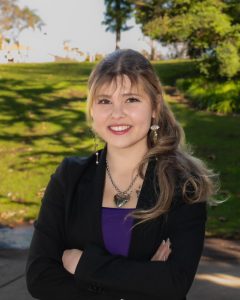
Last month, a Black History Month celebration became a hotly debated subject at the Feb. 2 Associated Students Council meeting, raising questions as to its methods of deciding how to fund events.
After being denied full funding by the Cultural Arts and Special Events board for their event, San Diego State’s Student African American Brotherhood and Student African American Sisterhood members showed up at the meeting to express their dissatisfaction, and to appeal for funds.
“We saw a budget for $2,500 for chicken and tri-tip and we were kind of hesitant,” CASE board member Mina Azim said. “We wanted to take a stronger stance on food. We just wanted to be more appropriate in the funding that we do. It wasn’t outlined because it’s really just a case-by-case basis.”
However, A.S. member Channelle McNutt disagreed, noting that there is no policy regarding food.
“Everyone’s referring to the policy,” McNutt said. “But where is the policy? If it’s not on the website, if it’s not on the pamphlets they give out, then why are we holding them accountable for a policy they didn’t know about?”
The council was forced into the palpably uncomfortable position of acting as police in a vote that ultimately overturned a CASE Board decision to partially fund the event on campus.
For the first time, SAAB and SAAS combined this year to host their Signature Program on Feb. 18 in The Parma Payne Goodall Alumni Center.
SAAS President Frances Henderson said that the program is geared toward honoring African American men and women in higher education and celebrating the community’s successes.
“It’s a tribute to people who have paved the way for us to get here,” Henderson said. “We’re thankful to them as many of us are first generation college students.”
The event, which has been co-sponsored by CASE for the past two years, has recognized public figures such as the chief of police, the mayor and SDSU President Stephen L.Weber.
CASE, which is funded by student fees that were approved by the student body during a Spring 2008 referendum, is best known for its on-campus film screenings.
Both this year and last, CASE received a budget of $100,000 to allocate to student organizations. Katelynn Zoellner, chair of the CASE board, said that CASE ran out of funding in February. Last year, it had spent all the money by March.
“It’s an amazing thing,” Zoellner said. “I wish we had so much more money so we could allocate it to other organizations but we’re out. We’re done with funding this year.”
This year, when SAAB applied for $4,000 of CASE funding, it was only partially funded.
SAAB student co-adviser Johnathan Parker was confused. He formerly served as president of the organization so his advice was sought when the current president prepared and submitted SAAB’s funding application.
“Our projected attendance has been constant throughout the years, the food menu has been constant throughout the years, our application and the requested amount has been constant throughout the years and we just got funded for it last year,” Parker said.
CASE documents show that during 2009-10, SAAB and SAAS were funded $3,487 and $3,826, respectively. Parker said that in the interest of budget cuts, the organizations decided to hold their events together. Instead of requesting $7,300 apart, it would cost less for them to unite.
However, preliminary CASE approval was only $676 — the cost to rent the room.
On Jan. 31, SAAB brought in more documentation and explained the program to the CASE board. It increased the amount of the original funding to a total of $2,000, half of SAAB’s original request.
“What we understood from the event was it was presented as an awards ceremony,” A.S. Vice President of Finance Amanda Pascoe, who also sits on the CASE Program Funding Committee, said.
“Later they came in and said it’s educational, there’s a keynote speaker,” she said. “Half of it is only an awards ceremony and it’s not just for campus leaders, but it’s San Diego-wide.”
Pascoe explained that the CASE board decided $676 wasn’t ample funding, so the amount was increased, but would not fully fund a buffet style meal.
If you feed them, they will come
Parker said that SAAB and SAAS tried to explain to CASE that their culture experiences fellowship over food and that it has the ability to bridge a lot of gaps.
“Food has always been a really touchy subject with student orgs,” Pascoe said. “We’ve always been sensitive to the fact that food’s important but we don’t want all of that money to be spent on that. That is the very clear-cut policy.”
However, it did not seem clear at the A.S. meeting. Members of the audience and council members went back and forth trying to get an answer as to whether there was a food policy.
“At the beginning of each year, CASE assesses the previous year’s budget for Case Program Funding,” Pascoe said. “It is our responsibility to consider all applications in an effective and objective manner. This year, CASE’s stance is to support funding for food but on a limited consideration.”
A.S. Council members repeatedly asked the CASE representatives to produce a written policy at the meeting.
“No there’s not,” Azim said. “We do say that we don’t just hand out money. We see your presentation; we assess it to see what we’re going to fund and what we’re not going to fund. The reason that we’re not going to put that we don’t fund food is because that’s not true for every case. We usually fund food but it’s more case-by-case.”
Azim serves multiple student leadership roles at SDSU. She is part of the A.S. President’s Cabinet, Student Affairs Board, University Affairs Board, CASE Board and CPF. She is also currently running for executive office in A.S.
Parker said Azim has been an opponent to the Signature Program in the past.
“Even before this year she said to us ‘I don’t see how this is culturally relevant and appeals to every student,’” he said.
The College of Arts and Sciences Rep. Tom Rivera stated that throughout the past couple of years, A.S. had a difficult time adhering to its policies.
“If we keep making decisions on a case-by-case basis, not only will CASE go bankrupt but it puts them in a position where it could be seen as discriminating against organizations, and that could become an even bigger issue in the future,” he said. “So, looking forward, it’s really important that we have some sort of policy.”
Parker and President of M.E.Ch.A Laura Moreno, who was at the council meeting to support SAAB and SAAS, said a written policy would clear the confusion.
“I’m here to support SAAB and SAAS,” she said. “CASE keeps mentioning that other organizations’ funding has been cut but we’re one of those organizations and they only cut $25 of our $3,900 budget.”
Adding to the emotionally charged meeting was that the student organizations felt they were asked insulting questions.
Henderson said SAAS and SAAB were caught off-guard by some of them.
“They asked us ‘how does this program appeal to the average student?’ We wanted to know the definition of the average student,” she said. “That set fire — it set the tone for the rest of the meeting, unfortunately.”
“We didn’t feel like there was an interest in our community or in the program as valid,” Parker added. “We’re not the average student. It shouldn’t be about the majority of students, it should be about every student.”
CASE Action Team Member Cyrina Harvey addressed the A.S. Council about the previous meetings.
“I felt there was a very negative vibe,” she said. “As far as the decision, it was presented as if it was already made up. Our concerns were addressed by SAAB and SAAS that the event would be educational to the whole student body.”
Zoellner made a public comment at the following week’s A.S. Council meeting.
“It’s disheartening to not have the support of A.S.,” Zoellner said. “We will revisit CPF guidelines and our decision making process.”
She said she desperately wishes she would’ve been at the A.S. meeting. Additionally, she said she thinks there are policies, and pointed to the handout that is given to the organizations that explain the three requirements.
“These are three for-sure policies — the events have to be on campus, free for all students and must be open and inclusive to all students,” Zoellner said. “Something I would like to highlight is here ‘CASE Board may decide not to fund certain parts of your program.’”
Parker said that the only guidelines he knew about were those three “for-sure” policies.
“As far as we were concerned, we were meeting all of the CASE prerequisites for funding,” he said. “If there’s a new food policy, it’s not accessible anywhere for us to revamp our application and seek out other avenues of funding.”
Zoellner could not locate a food policy.
“It never said anything clearly about how we do not fund food,” Zoellner said. “That’s one thing that we as a board have decided we want to put a lot of attention to.”
CPF is currently meeting to revisit its guidelines in light of the situation. It’s considering a “food exception form” and a specific dollar limit. Zoellner said there will be a written policy voted on before the end of the school year.
Next year, CASE can expect to see the Signature Program funding application paperwork to cross its desk again.
“It’s my belief that the university that we pay to attend, that we built the funds for through student fees, should continue to serve the students,” Parker said. “Although there’s a sour taste in our mouths from the struggle we had to overcome, we will approach CASE again for funding.”









